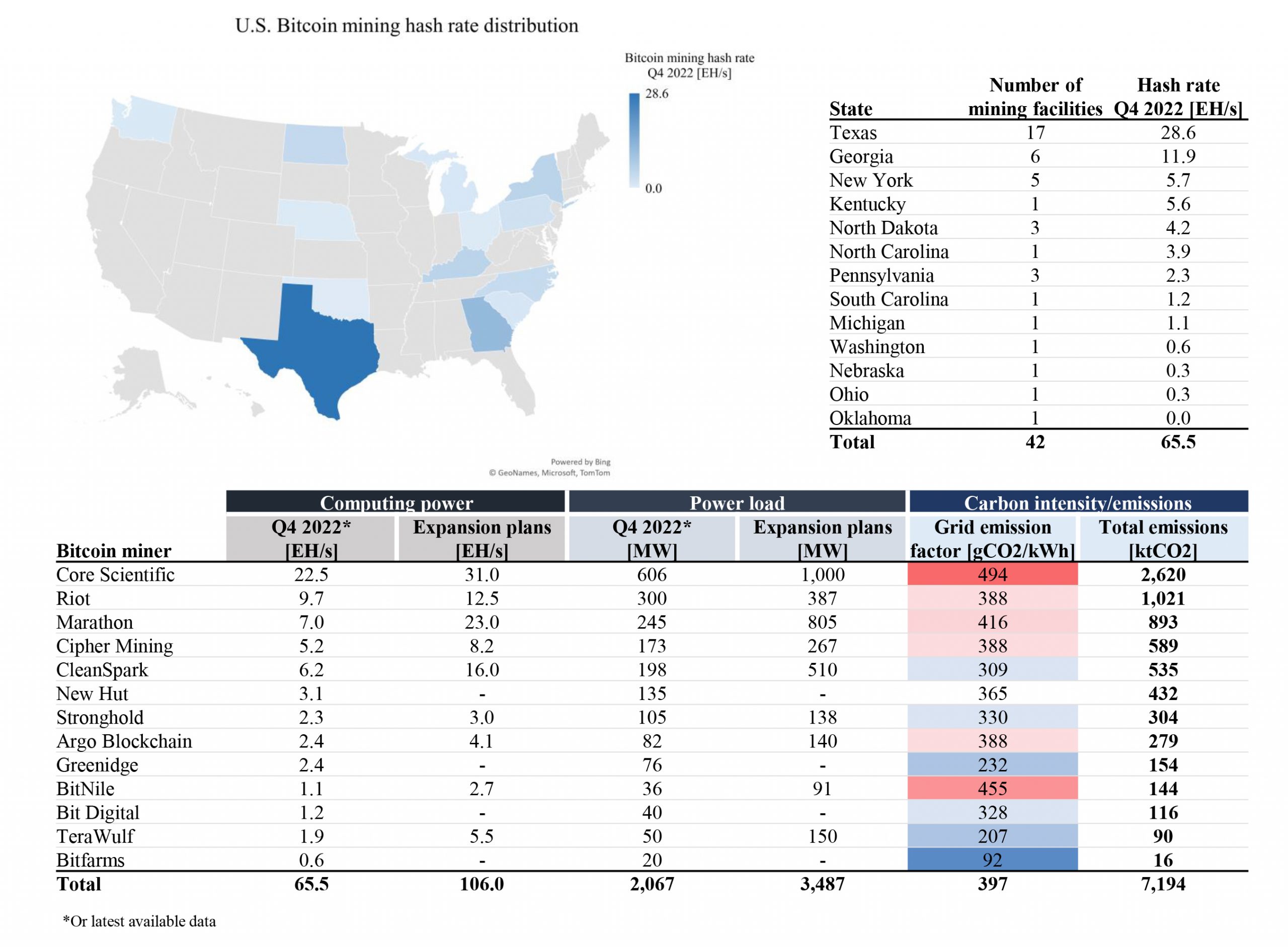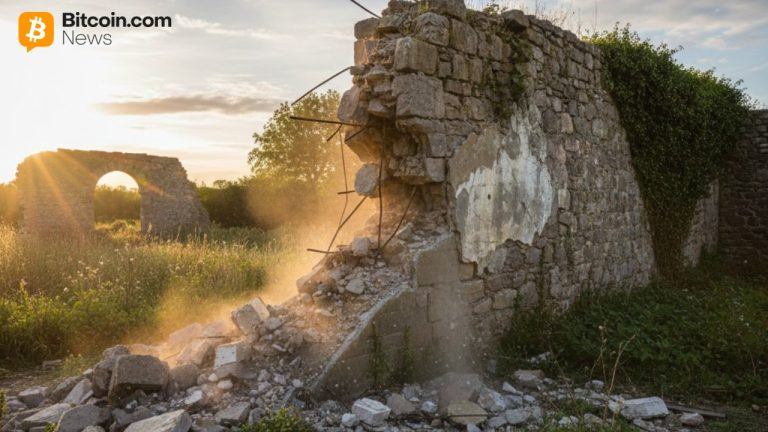Bitcoin mining is a controversial subject of debate due to its significant energy consumption. While proponents argue that it offers various climate benefits and can contribute to grid stability, mitigate methane emissions and expand renewable energy resources, MIT researchers have put this thesis to the test.
In a recent study by Christian Stoll, Lena Klaaßen, Ulrich Gallersdörfer, and Alexander Neumülle, the researchers validate the arguments from both sides and shed light on the extent and energy sources of Bitcoin mining in the United States.
Satoshi Act co-founder and CEO Dennis Porter wrote via Twitter, “BREAKING: MIT researchers acknowledge the grid balancing, methane mitigating benefits of Bitcoin mining in a new paper.” He emphasized this huge milestone, adding that “the paper calls for the claims to be backed up. We intend to back them up via [non-profit] Satoshi Action Education.”
Benefits Of Bitcoin Mining
While the researchers acknowledge the potential climate benefits associated with Bitcoin mining, they emphasize the need for closer scrutiny. Remarkably, Bitcoin mining can contribute to grid stability and resilience, as demonstrated during the winter storm Elliott in December 2022.
The researchers state, “Bitcoin miners curtailed as much as 100 Exahashes per second (EH/s) – equivalent to 38% of the total Bitcoin network hashrate on that day.” This event supports the argument that Bitcoin mining can provide grid operators with a resource that can rapidly adjust its power usage, offering stability during periods of high demand or grid stress.
The study also addresses the potential for Bitcoin mining to mitigate methane emissions, particularly from flaring. Bitcoin proponents like Dennis Porter argue that by utilizing wasted flare gas in electrical generators, emissions can be significantly reduced.
The researchers cite industry estimates that suggest a potential reduction of carbon dioxide equivalent (CO2e) emissions by 25% compared to open flares and up to 63% when accounting for flare outages. However, the researchers caution that recent studies indicate a lower flare efficiency than assumed, resulting in a smaller reduction in methane emissions than anticipated.
A recent flare efficiency study…finds that flare outages and inefficient combustion result in a flare efficiency of 91.1%.
Moreover, Bitcoin mining presents a potential solution to the issue of orphaned and unplugged oil and gas wells. The researchers note, “As of 2020, according to EPA research, the U.S. had 3,700,000 abandoned wells, of which 59% were unplugged, emitting 6.9 million tonnes of CO2 equivalent (MtCO2e) annually.”
The MIT research highlights that mining, with its location-agnostic nature and minimal local resource requirements, could help address this problem. By operating near orphaned wells, miners can convert wasted energy into electricity, generate revenue, and fund well-sealing efforts while mitigating the climate impact.
A fourth benefit of Bitcoin mining is the potential to facilitate the expansion of renewable energy resources. The researchers acknowledge that mining in remote locations can address challenges associated with integrating intermittent renewable energy sources into power grids.
They note, “Renewable energy sources, such as wind and solar, are characterized by intermittency, resulting in volatile and non-controllable electricity production,” adding, “higher and more stable demand for renewable electricity may support its expansion by driving down production costs via economies of scale.”
#Bitcoin Mining: MIT Research Acknowledges Benefits, Also Raises Criticism
Benefits
– Grid stability – Potential to mitigate methane emissions from flaring – Solution for orphaned and unplugged oil/gas wells – Facilitation of renewable energy expansion @Dennis_Porter_
— Jake Simmons (@realJakeSimmons) July 18, 2023
The Bad About BTC Mining: MIT
According to the MIT researchers, Bitcoin mining’s energy demand is substantial. They note, “Bitcoin miners’ power demand amounts to 15.4 gigawatts (GW) as of March 25th, 2023.” This data underscores the concerns surrounding the environmental impact of mining and its energy-intensive nature.
The researchers delve into the carbon intensity of electricity consumed by miners in the United States. Contrary to industry claims of significant reliance on sustainable energy, the study claims that the carbon intensity is nearly equivalent to the U.S. grid average.
“The carbon intensity of electricity consumed…is 397 gCO2/kWh, nearly equivalent to the U.S. grid average of 387 gCO2/kWh.” This finding challenges the notion that the majority of BTC mining (58.9%) is fueled by renewable sources.
Furthermore, the study reveals the magnitude of carbon emissions caused by a subset of publicly listed mining companies in the U.S. They report, “the annual emissions of 7.2 MtCO2 caused by the 13 analyzed publicly listed miners in the U.S. alone surpass the carbon emissions of the State of Vermont.”

Unveiling The Reality
The MIT researchers’ study provides a comprehensive analysis of the benefits and drawbacks associated with BTC mining. The data reveals the substantial energy consumption and carbon footprint of mining operations. While the study finds potential climate benefits such as grid stability, methane emissions reduction, well sealing, and renewable energy expansion, the researchers emphasizes the need for more research:
We find that the potential climate benefits of Bitcoin mining also warrant closer attention. Financial incentives of the Bitcoin network may, for instance, subsidize the sealing of orphaned and unplugged wells, and thereby, reduce methane emissions at scale.
At press time, the BTC price fell below $30,000.


You can get bonuses upto $100 FREE BONUS when you:
💰 Install these recommended apps:
💲 SocialGood - 100% Crypto Back on Everyday Shopping
💲 xPortal - The DeFi For The Next Billion
💲 CryptoTab Browser - Lightweight, fast, and ready to mine!
💰 Register on these recommended exchanges:
🟡 Binance🟡 Bitfinex🟡 Bitmart🟡 Bittrex🟡 Bitget
🟡 CoinEx🟡 Crypto.com🟡 Gate.io🟡 Huobi🟡 Kucoin.



















Comments